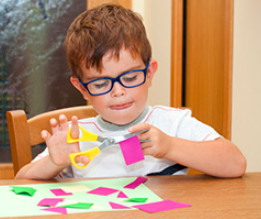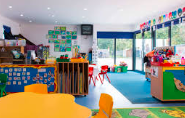In today’s fast-paced world, it can be challenging for young children to stay focused for extended periods. Yet, developing concentration is a crucial skill that supports academic success and everyday learning. With the right strategies and a supportive environment, children can gradually improve their attention span and ability to concentrate on tasks.
Why Concentration Matters in Early Childhood
Concentration helps children complete tasks, follow instructions, solve problems, and enjoy learning. It also builds self-discipline and patience. When children can focus, they’re more likely to absorb new information and explore their creativity fully.
Common Challenges to Focus
Children may struggle with concentration due to distractions in their environment, overstimulation, fatigue, or even a lack of interest in the task at hand. Understanding these factors helps caregivers respond with empathy and appropriate support.
Simple Ways to Encourage Focus
1. Create a Calm Environment
Minimize background noise and distractions during learning or play. A quiet space with minimal clutter helps children feel more at ease and ready to focus.
2. Use Short, Clear Instructions
Break tasks into smaller steps and give clear directions. Young learners do best with simple, direct language and gentle reminders.
3. Incorporate Movement Breaks
Children need to move! Including short physical breaks between activities helps release energy and reset their attention.
4. Practice Mindful Activities
Activities like deep breathing, storytelling, or listening to calming music can help train the mind to focus gently and steadily.
5. Choose Engaging Tasks
Children concentrate better when they’re interested in what they’re doing. Try using colorful materials, interactive games, or hands-on activities to keep them engaged.
6. Build Routines
Predictable daily routines help children know what to expect, reducing anxiety and improving their ability to focus on what comes next.
Encouraging Without Pressure
Praise effort rather than perfection. Celebrating small moments of focus encourages children to keep trying. Avoid forcing concentration—gentle encouragement and consistent support go a long way.
Final Thoughts
Helping children build concentration is a gradual process that requires patience and care. By creating a supportive environment, offering engaging tasks, and modeling focused behavior, parents and educators can nurture this essential skill in a positive and lasting way.


